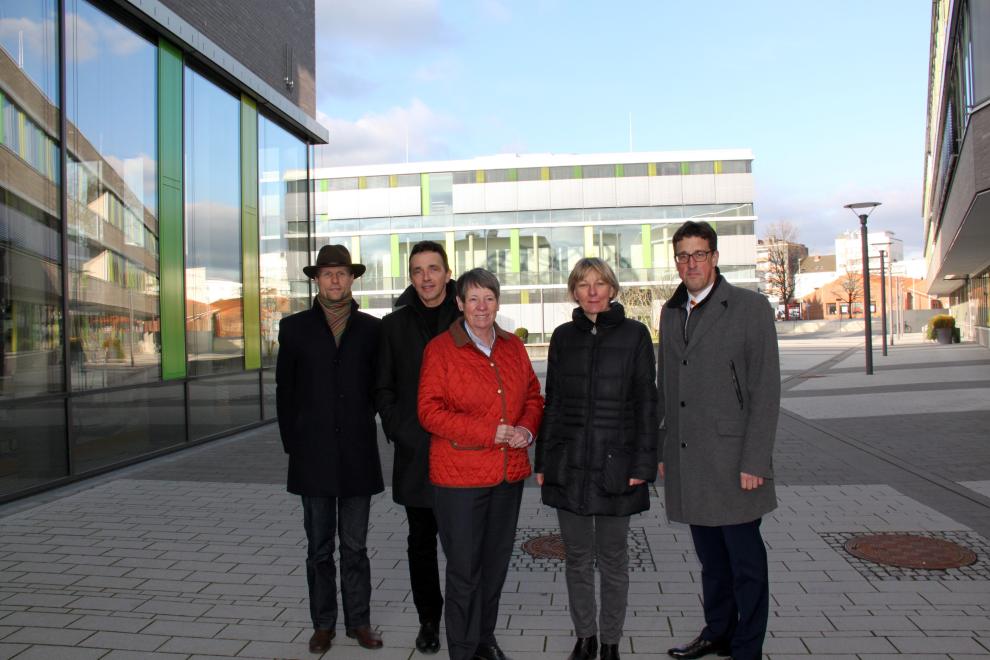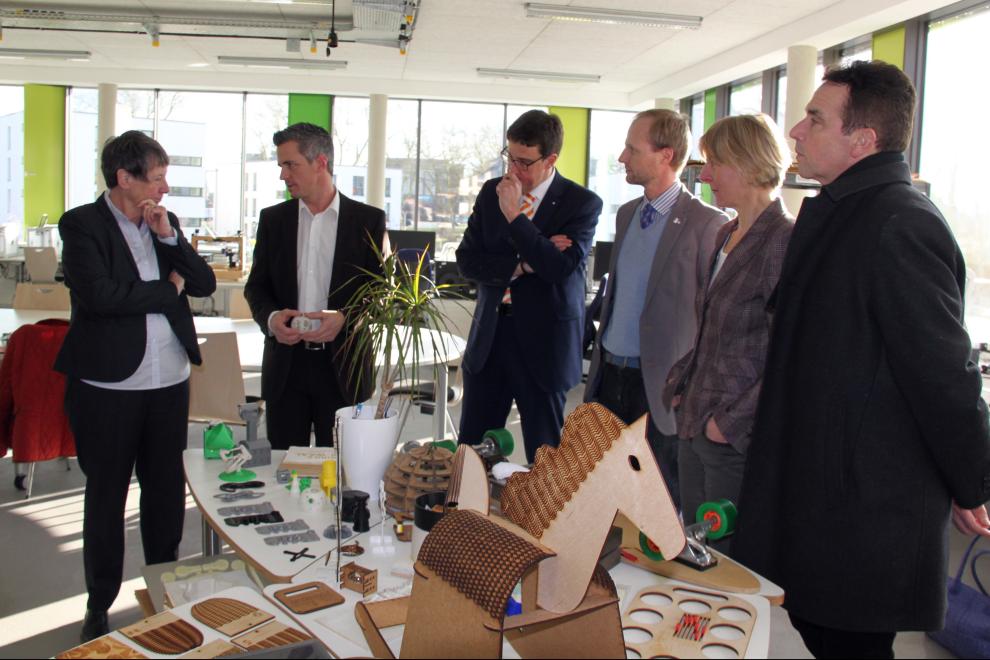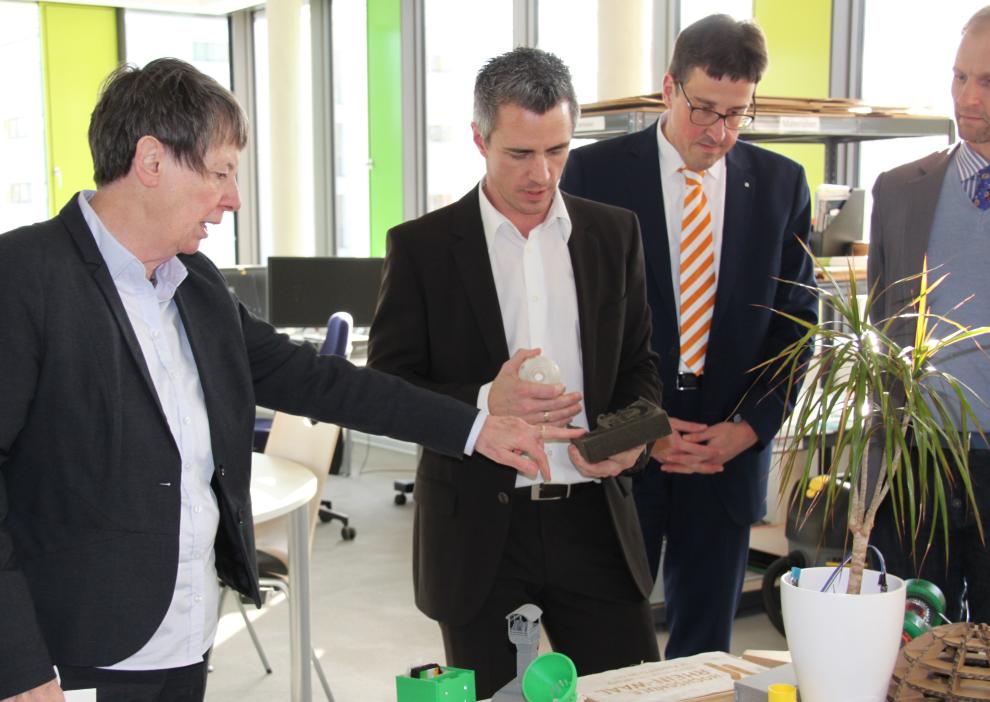Federal Minister Hendricks visits the Kamp-Lintfort Campus of Rhine-Waal University of Applied Sciences
A look at the University’s innovative spirit and modern technology
Dr Barbara Hendricks, Federal Environmental Minister of Germany, recently visited the Kamp-Lintfort Campus of Rhine-Waal University of Applied Sciences as well as the adjacent historical storeroom building, which was once used by the colliery Bergwerk West and is now being renovated for future use by the University.
Kleve/Kamp-Lintfort, 19 February 2016: While touring the historic storeroom building of the Bergwerk West colliery and the modern facilities of the Kamp-Lintfort Campus of Rhine-Waal University of Applied Sciences, Federal Minister Hendricks, a native of the Lower Rhine region, was treated to a first-hand look at the innovation and technology found at Rhine-Waal University of Applied Sciences. Federal Minister Hendricks was accompanied during her visit by University President Dr Heide Naderer; Professor Dr Karsten Nebe, Professor of Computer Science and Internet Technologies at the Faculty of Communication and Environment in Kamp-Lintfort; Professor Dr Christoph Landscheidt, mayor of Kamp-Lintfort; René Schneider, member of the Landtag of North Rhine-Westphalia; as well as a host of other representatives of the university and the city of Kamp-Lintfort.
Federal Minister Hendricks was thoroughly impressed by the University’s many developments in Kamp-Lintfort: “As a member of the University’s sponsoring organisation, I was often invited to the provisional university buildings being used in Kamp-Lintfort. The University – particularly with its new campus and its plans for the adjacent historical storeroom – presents a wonderful opportunity for development in both the city and the region. This development convinces young people to remain in the region. It represents a small step towards reclaiming the jobs lost when the Bergwerk West colliery closed and Siemens left the city.”
In addition to topics like the structural transformation of urban areas, the University’s role in the region, and economic/ecological sustainability, another important topic of discussion was the lack of rail connection to the city of Kamp-Lintfort. President Naderer stressed that a “rail connection between both campus locations of Rhine-Waal University of Applied Sciences is a major priority for us and for Kamp-Lintfort, particularly with the city hosting the Landesgartenschau horticultural exhibition in 2020.” Mayor Landscheidt was in complete agreement: “A rail connection for Kamp-Lintfort would be doable, meaningful and a smart economic decision. This is backed up by numerous expert reports. Beginning in 2018, the city will begin converting the former colliery for the Landesgartenschau in 2020. That’s why we need now, more than ever, the promised support of the state transport minister and a clear decision from responsible persons in the communal transport associations.”
A highlight of Federal Minister Hendrick’s visit was a tour of the University’s FabLab (short for ‘fabrication laboratory’), which allows students and private individuals alike to use modern manufacturing technology (3D printing, laser cutting) and modern industrial manufacturing processes for one-off items. “FabLab is an important facility of Rhine-Waal University of Applied Sciences. As a university of applied sciences, we have a special responsibility to promote and encourage practical relevance through our teaching and research. That’s what FabLab in Kamp-Lintfort stands for,” said President Naderer. “It’s an important hub for private residents and pupils from the region. This importance will continue through Landesgartenschau 2020 with the large creative workshop involving FabLab, currently being planned in cooperation with city officials.”



